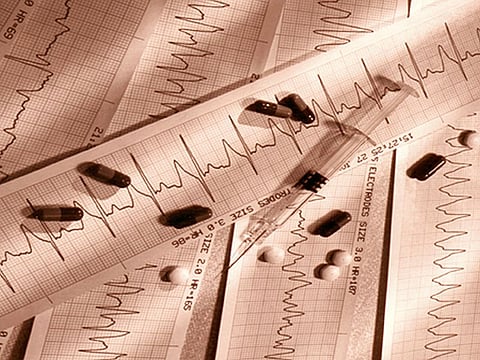THURSDAY, March 30, 2017 (HealthDay News) -- Apixaban therapy is cost-effective for atrial fibrillation from the perspective of the U.S. health care system, according to a study published online March 29 in JAMA Cardiology.
Patricia A. Cowper, Ph.D., from the Duke University Medical Center in Durham, N.C., and colleagues examined the cost and cost-effectiveness of apixaban therapy versus warfarin therapy in an economic analysis involving 3,417 U.S. patients enrolled in the Apixaban for Reduction in Stroke and Other Thromboembolic Events in Atrial Fibrillation (ARISTOTLE) trial.
The researchers found that the health care costs were not statistically different for patients treated with apixaban versus warfarin therapy after two years of anticoagulation therapy (difference, −$60). Based on ARISTOTLE outcomes, life expectancy was significantly longer with apixaban versus warfarin therapy (7.94 versus 7.54 quality-adjusted life-years). The incremental cost (including anticoagulant and monitoring costs) of achieving these benefits was within accepted U.S. norms ($53,925 per quality-adjusted life-year). When model assumptions were varied, the results were generally consistent, with the price of apixaban and time horizon having the biggest impact on lifetime cost-effectiveness.
"Apixaban therapy for ARISTOTLE-eligible patients with atrial fibrillation provides clinical benefits at an incremental cost that represents reasonable value for money judged using U.S. benchmarks for cost-effectiveness," the authors write.
Several authors disclosed financial ties to pharmaceutical companies, including Bristol-Myers Squibb and Pfizer, both of whom market apixaban.
Abstract/Full Text (subscription or payment may be required)
Editorial (subscription or payment may be required)


